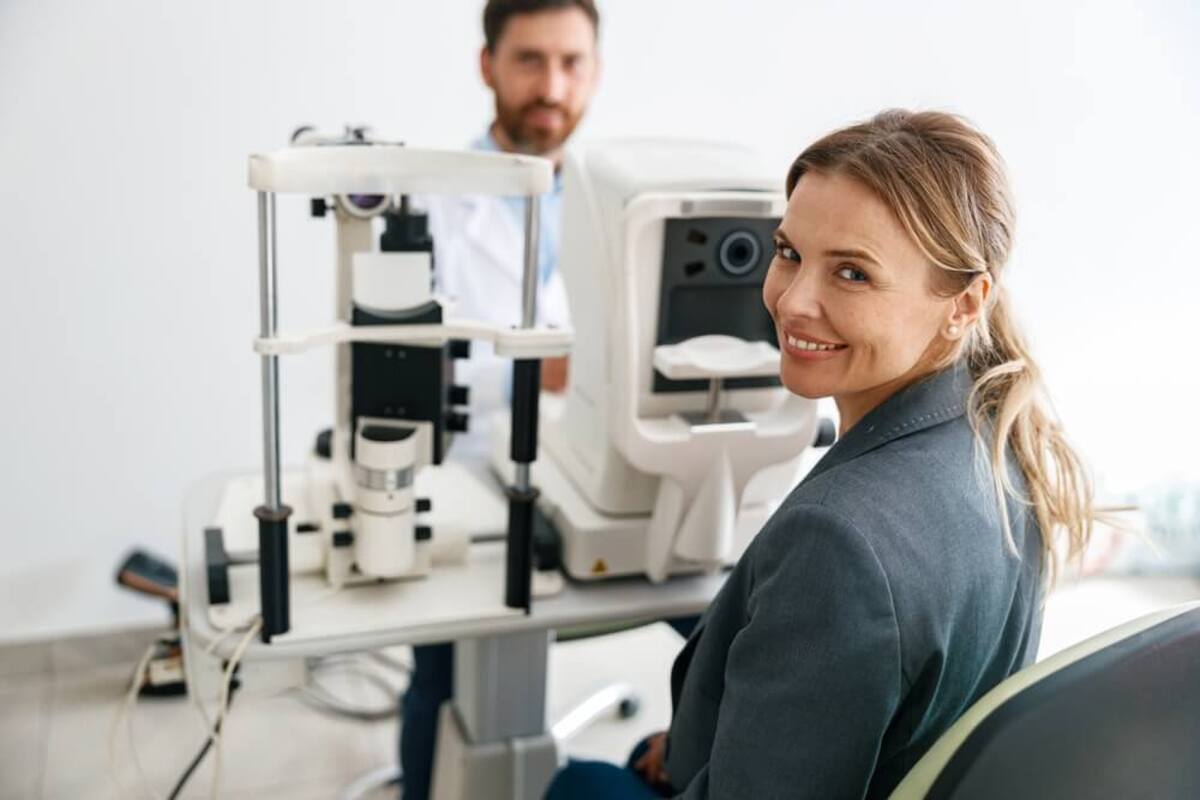Sinus infections can be a real nuisance, leaving you with facial pain, nasal congestion, and a feeling of unwellness. But have you ever wondered if a sinus infection could lead to pink eye? If so, you’re not alone. Many worry about whether a sinus infection can cause pink eye, especially when their eyes start feeling itchy, watery, or irritated while battling sinus issues.
In this article, we’ll explore how sinus infections and pink eye can be connected, what signs to look for, and how to get proper treatment. Let’s dive in.
Understanding Sinus Infections and How They Spread
Your sinuses are air-filled spaces in your skull lined with a mucous membrane. Their job is to help humidify air, lighten the weight of your head, and enhance your voice. You can develop sinusitis when these sinus cavities become inflamed due to viruses, bacteria, or even allergies.
Sinus infections usually fall under two categories:
- Acute sinusitis: lasts less than four weeks
- Chronic sinusitis: lasts more than 12 weeks
Most infections that cause sinusitis are viral, but bacterial sinus infections can also occur. The infection and inflammation can sometimes extend to nearby tissues, including the eyes. This is where pink eye comes into the picture.
What Exactly Is Pink Eye?
Pink eye, also called conjunctivitis, happens when the transparent membrane covering your eye (the conjunctiva) becomes inflamed. Several factors can cause it:
- Viral infections (viral conjunctivitis)
- Bacterial infections (bacterial conjunctivitis)
- Allergic reactions (allergic conjunctivitis)
Pink eye leads to redness, irritation, watery eyes, and sometimes yellow or green discharge. It’s highly contagious, especially if caused by bacteria or viruses.
So, Can a Sinus Infection Cause Pink Eye?
Yes, in some cases, a sinus infection can cause pink eye, or at least make you more likely to develop it. Here’s how:
- Shared pathways: The nasolacrimal duct links the nasal passages and eyes. When the sinuses are infected, bacteria or viruses can travel through these pathways, spreading to the eyes.
- Weakened immune defenses: A sinus infection may overwhelm your immune system, making it easier for infectious agents to invade the conjunctiva.
- Inflammatory response: Inflammation from sinusitis can spread to nearby tissues, creating the perfect breeding ground for developing pink eye.
This is why some people experience watery eyes, itchiness, and burning sensation during or after a sinus infection.
Spotting the Signs: When to Be Concerned
If you have a sinus infection and start noticing pink eye symptoms, paying attention is important. Watch for these telltale signs:
- Red, irritated eyes
- Itchy eyes
- Excessive tearing
- Green or yellow discharge
- Crusting on eyelashes
- Blurred vision
- Eye pain
If you notice these symptoms along with nasal congestion and facial pain, your sinus infection and pink eye may be connected.
Types of Conjunctivitis Linked to Sinus Infections
Viral Conjunctivitis
Viral infections are the most common cause of sinus infections and pink eye infections. Viruses responsible for respiratory infections often spread to the conjunctiva, leading to viral conjunctivitis. Unfortunately, viral conjunctivitis usually has to run its course, although artificial tears and cold compresses can help relieve discomfort.
Bacterial Conjunctivitis
Bacterial sinus infections can spread bacteria to the eyes, causing bacterial conjunctivitis. This type may produce thicker yellow or green discharge and require antibiotic eye drops prescribed by your eye doctor.
Allergic Conjunctivitis
Sometimes, allergies trigger both sinus congestion and allergic conjunctivitis. Pet dander, pollen, or dust can inflame the sinuses and the eyes, leading to watery eyes, itchy eyes, and nasal congestion.
Why an Accurate Diagnosis Matters
If you have symptoms of both sinus infection and pink eye, it’s crucial to see a healthcare provider. A proper diagnosis can help rule out other conditions, such as ear infections, orbital cellulitis, or more serious inflammatory problems around the eyes.
Your doctor may recommend:
- A physical exam
- Medical history review
- Sometimes a culture or swab of the discharge
Getting professional medical advice ensures the right treatment plan and prevents complications.
How to Treat Sinus Infections and Pink Eye
Treatment will depend on the root cause:
- Viral infections: usually resolve on their own with supportive care
- Bacterial infections: may need antibiotics or antibiotic eye drops
- Allergic reactions: treated with antihistamines, artificial tears, and allergen avoidance
Your doctor may also suggest saline nasal sprays to promote proper drainage in the nasal cavity. These sprays help clear mucus and reduce pressure in the sinuses and nearby tissues.
In cases of severe inflammation or recurrent infections, further investigation may be needed to rule out chronic sinusitis.
How to Prevent Sinus Infections and Pink Eye
Prevention is better than a cure. Here are some helpful steps to reduce your chances of getting either:
- Practice good hand hygiene
- Avoid touching your eyes with unwashed hands
- Use saline nasal sprays to keep your nasal passages moist
- Manage allergies to prevent sinus inflammation
- Clean contact lenses properly
- Stay away from people who have viral respiratory infections
- Strengthen your immune system with a balanced diet and adequate rest
You can help break the cycle of infections and pink eye by managing sinus infections promptly and keeping your hands clean.
When Should You See a Doctor?
Seek professional care if you have:
- Eye pain or vision changes
- Severe redness or swelling
- Symptoms that worsen despite home care
- Recurrent infections
Pink eye connected to a sinus infection should be evaluated by an eye doctor or your primary physician to make sure you get the appropriate treatment.
Final Thoughts: Take Care of Your Sinuses and Your Eyes
Can a sinus infection cause pink eye? The answer is yes, especially if bacteria or viruses spread through the tear ducts or nasal passages. Whether it’s viral conjunctivitis, bacterial conjunctivitis, or allergic conjunctivitis, addressing the underlying cause of the sinus infection is key to preventing complications.
By seeking an accurate diagnosis, following your doctor’s advice, and practicing proper hygiene, you can protect both your eye health and your sinuses. Remember, your eyes and sinuses are closely connected, so caring for one helps support the other.
If you ever have concerns about developing pink eye during a sinus infection, don’t hesitate to reach out to a healthcare provider for professional medical advice. With the right guidance, you can keep these common infections under control and stay healthy.
References:
https://www.chcfl.org/can-a-sinus-infection-cause-pink-eye/
https://my.clevelandclinic.org/health/diseases/pink-eye-conjunctivitis
https://kidshealth.org/en/parents/conjunctivitis.html
https://www.mayoclinic.org/diseases-conditions/pink-eye/symptoms-causes/syc-20376355




